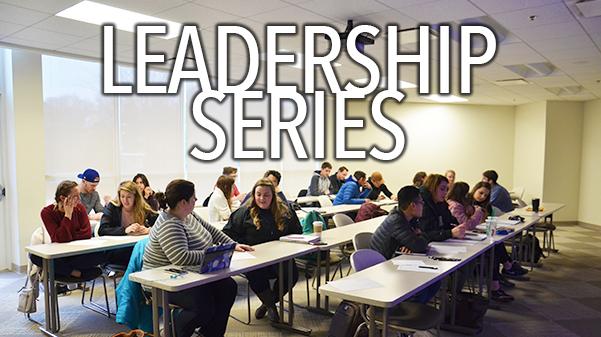MATT HAMPTON | Reporter
Marilyn Patterson, a psychology professor, talked about issues which often lead to poor decisions and how these problems can be overcome for the Spring Leadership Series on Tuesday.
“Effective Decision Making: How to Make Better Decisions” was held at 4 p.m. in Harmon 131.
- A traditional method of decision-making is the six-step method: define the problem, create a list of possible outcomes, list the pros and cons of each choice, select a solution, implement the solution and assess the result. “[Decision-making] sounds so easy, but it’s so much more complex than that,” Patterson said.
- There are six roadblocks which commonly damage effective decision making.
- Impatience. Sometimes slowing down to think can help you find the correct solution to a problem. Patterson said, “People who can visualize the consequences and feasibility of a decision are more likely to make a positive decision.”
- Overthinking. Putting too much stress on your brain can cause “cognitive fatigue.” According to Patterson, taking a break from multitasking is a significant way to limit cognitive fatigue.
- Information Overload. Having an excessive amount of data can make decisions difficult. “[Avoiding information overload] is difficult, especially when we need a lot of information to make a decision,” Patterson said. “But more information is better only when that information is weighed in relation to the time and difficult of obtaining it against the value it adds to your decision.”
- Clouded Thinking. Patterson said not understanding emotions relating to a problem and where they come from can prevent you from making a rational decision.
- Anxiety. Considering possible negative consequences can turn into “analysis paralysis.” “Some of this is good; you want to explore what that could look like,” Patterson said. “But sometimes people ‘what if’ so much that they don’t make the decision at all.”
- Perfectionism. This tendency prevents flexible decision-making.
- Stress distorts the way we analyze information. Contrary to popular belief, when stressed about a decision, the brain pays more attention to potential positive results, according to Patterson. She said that it also inhibits attention, focus and memory, but the negative effects of stress can be combated by practicing making decisions under pressure.
- Seeking advice can be useful, but can also feed into confirmation bias.
- Quantify your choices and weigh the pros and cons of each, including variables such as risk and personal values.
- Fast-forward and view the future consequences of a decision.
- Think about how your personal values relate to the decision. Patterson advised reflecting on good and bad decisions you have made and how each was impacted by your personal values.
- Avoid groupthink, when the group falls into the same pattern of thought, and social loafing, when some individuals refrain from participation, in group decisions.
During the class, pairs of students roleplayed a job interview in which the common interview question “How do you make important decisions?” was asked.
The next installment of the leadership series, “Managing Expectations in Leadership Positions,” will be lead by John Barr, an assistant professor of physics on Feb. 20.
This is the fourth story in a series covering the leadership sessions offered on campus. Check back each week for updates.














